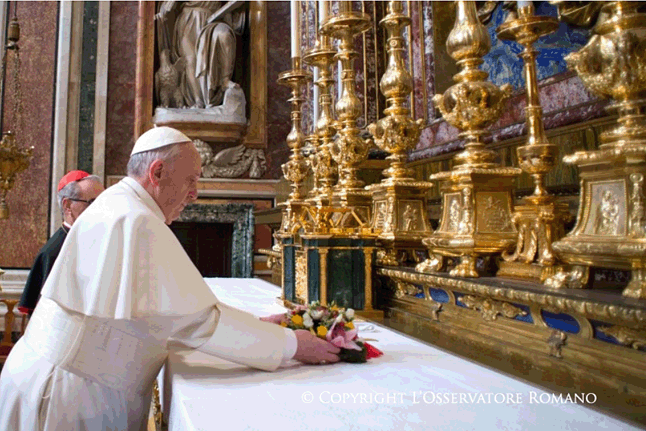
By David F. Rooney
A lot is being made — and rightly so — of the climate change encyclical, Laudato Si: On care of our common home issued by Pope Francis on Thursday, June 18.
This well-considered, 180-page document will discomfit the comfortable and self-satisfied individuals, corporations and institutions of the world and calls on us all to take concrete steps to deal with the climate change that is beginning to alter our common home. At its moral core, Laudato Si, is a call for action on phasing out the use of fossil fuels.
“Climate change is a global problem with grave implications: environmental, social, economic, political and for the distribution of goods,” the papal statement says. “It represents one of the principal challenges facing humanity in our day.”
There will undoubtedly be corporations and politicians who will dismiss the Pope’s comments; in fact, that has already begun. But the moral authority of the Papacy is not easily dismissed and Francis’ concern about what is clearly happening will add vigour to the scientists, political leaders, activists and ordinary people who oppose the climate change deniers.
Unfortunately, there are no easy solutions to climate change. One thing is certain, though: The longer our world’s leaders and the major corporations dither and sit on their hands the more difficult it will become to arrest or halt the changes threatening not just humanity, but the millions of animal and plant species with which we share this planet.
According to Papal Encyclicals Online “A Papal Encyclical is the name typically given to a letter written by a Pope to a particular audience of bishops. This audience of Bishops may be all of the Bishops in a specific country or all of the Bishops in all countries throughout the world.”
If you’d like to read or download this historic document The Current is pleased to provide you with these links:
Please click here to read the encyclical online.
Please click here to download a PDF version of the encyclical.



